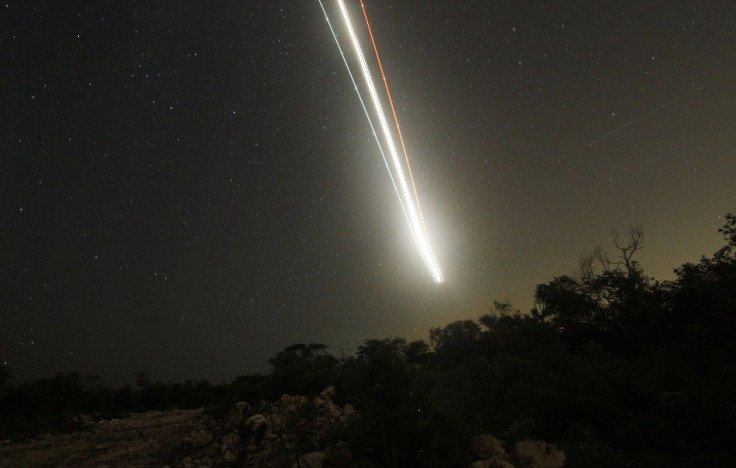Fireball Meteorite That Crashed In Michigan Could Explain How Life On Earth Began
KEY POINTS
- The meteorite is 12 million years old and contains more than 2,600 organic compounds
- Scientists say the frozen surface of the Strawberry Lake in Michigan helped preserve its compounds
- Only 4% of meteorites falling to Earth is classified as an H4 chondrite
A "fireball" meteorite that landed on Earth in 2018 contained pristine organic compounds, which could potentially reveal how life began on our planet, a new study said.
In a study, published in Meteoritics & Planetary Science, a team of researchers analyzed fragments of the 12 million years old meteorite, which fell onto the frozen Strawberry Lake in Michigan after a fireball event on Jan. 16, 2018, and found that it contained more than 2,600 organic compounds. Its chemical composition remained largely unaltered even after landing on Earth's surface. A meteorite this pure is called an H4 chondrite and only 4% of meteorites falling to Earth belong to this type.
There are numerous theories regarding the origin of life on Earth. One theory is that the compound responsible for starting life could have been brought to the planet by meteorites.
"This meteorite is special because it fell onto a frozen lake and was recovered quickly. It was very pristine. We could see the minerals weren't much altered and later found that it contained a rich inventory of extraterrestrial organic compounds," Philipp Heck, an associate professor at the University of Chicago and the lead author of the new paper, said in a press release.
"These kinds of organic compounds were likely delivered to the early Earth by meteorites and might have contributed to the ingredients of life," he explained.
The team said the meteorite may have got separated from its parent asteroid 12 million years ago and had been traveling to Earth until it landed here in 2018. All through its journey, it was exposed to cosmic rays. Its parent asteroid was believed to be 4.5 billion years old, which means it was formed just about 20 million years after the solar system was born.
"This meteorite shows a high diversity of organics, in that if somebody was interested in studying organics, this is not normally the type of meteorite that they would ask to look at. But because there was so much excitement surrounding it, everybody wanted to apply their own technique to it, so we have an unusually comprehensive set of data for a single meteorite," Jennika Greer, a graduate student at the University of Chicago and one of the paper's authors, said in the release.

© Copyright IBTimes 2025. All rights reserved.





















